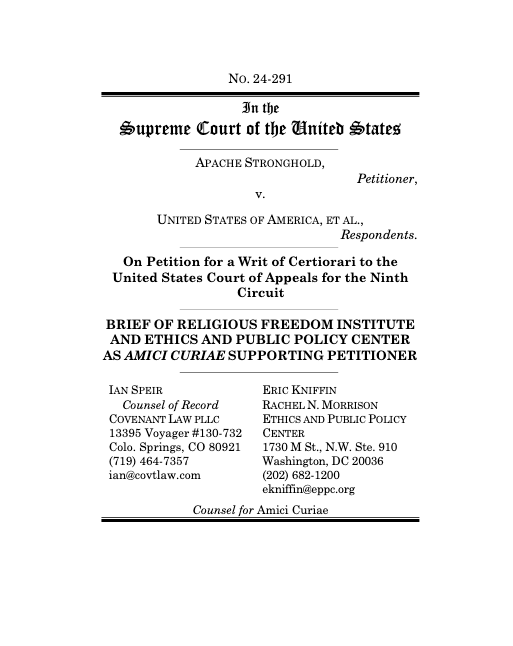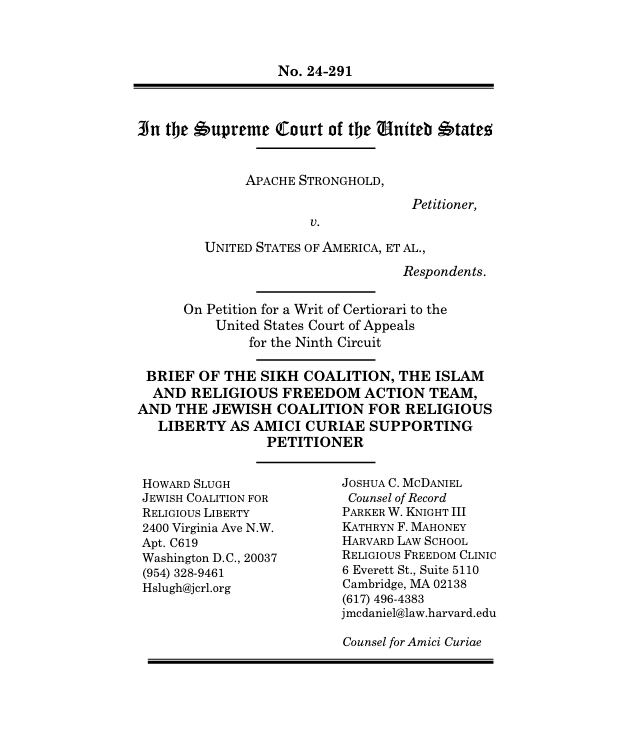Summary of facts: In 2014, Congress ordered the transfer of an Apache worship site in Arizona to a multinational mining corporation seeking to turn the land into a copper mine. The Apache sued, arguing that the federal government’s transfer of the land was a substantial burden on their religious exercise under the Religious Freedom Restoration Act (RFRA). A 3-judge panel of the U.S. Court of Appeals for the Ninth Circuit ruled against the Apache, holding that the destruction of a sacred worship site does not constitute a “substantial burden” under its interpretation of RFRA. The Ninth Circuit then agreed to rehear the case under “limited en banc review,” meaning a panel of eleven appellate court judges. That panel again ruled against the Apache. They then sought “full en banc review” of their case by all 29 of the circuit’s judges, but the full Ninth Circuit declined. The Apache are now asking the U.S. Supreme Court to review the case.
RFI position: RFI filed two separate amicus briefs in the Supreme Court in support of Apache Stronghold’s petition for review. The first refutes the Ninth Circuit’s concern that granting the Apache relief in this case would require an interpretation of RFRA that would allow Native Americans a veto over the use of all public land. The second, a multifaith brief joined by RFI’s Islam and Religious Freedom Action Team, argues that, contrary to the Ninth Circuit’s interpretation of RFRA, the federal government’s plan to annihilate a site central to Apache religious practice is obviously a “substantial burden” within the scope of the statute’s protections.
Read the RFI amicus brief here and the RFI Islam Team brief here.
THE RFI BLOG

Is Egypt’s Government Trying To Take Over Christianity’s Most Important Monastery?

Does Southeast Asia Lead the World in Human Flourishing?

RFI Leads Training Session on Religious Freedom Law and Policy for U.S. Army War College

Oral Argument in Charter School Case Highlights Unconstitutional Motives Behind OK Attorney General’s Establishment Clause Claim

Largest Longitudinal Study of Human Flourishing Ever Shows Religion’s Importance
CORNERSTONE FORUM

Reaffirming Religious Freedom: Bridging U.S. Advocacy and Iraq’s Constitutional Framework

Political Polarization, Same-Sex Marriage and Religious Liberty

Bridging the Gap Between International Efforts and Local Realities: Advancing Religious Freedom in the MENA Region

Challenges to Religious Freedom in Iraq and the Critical Need for Action



